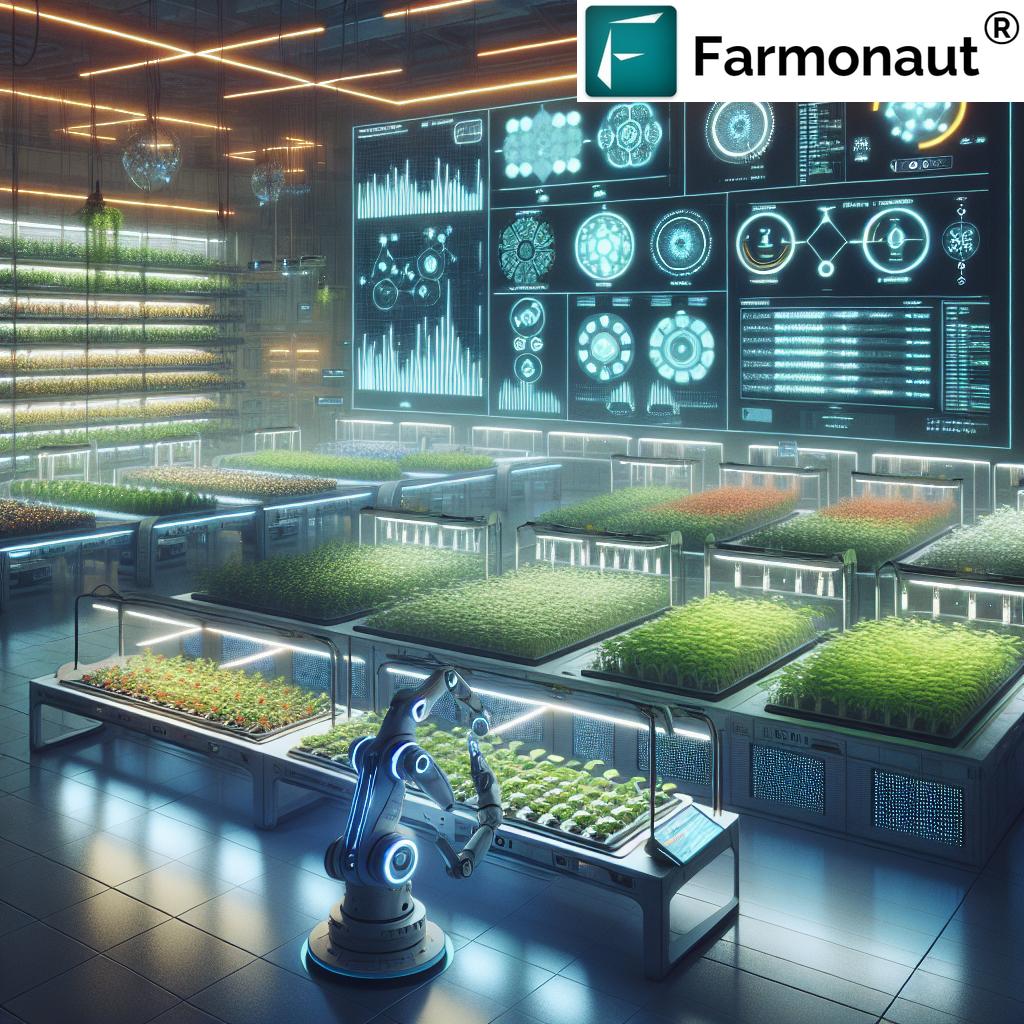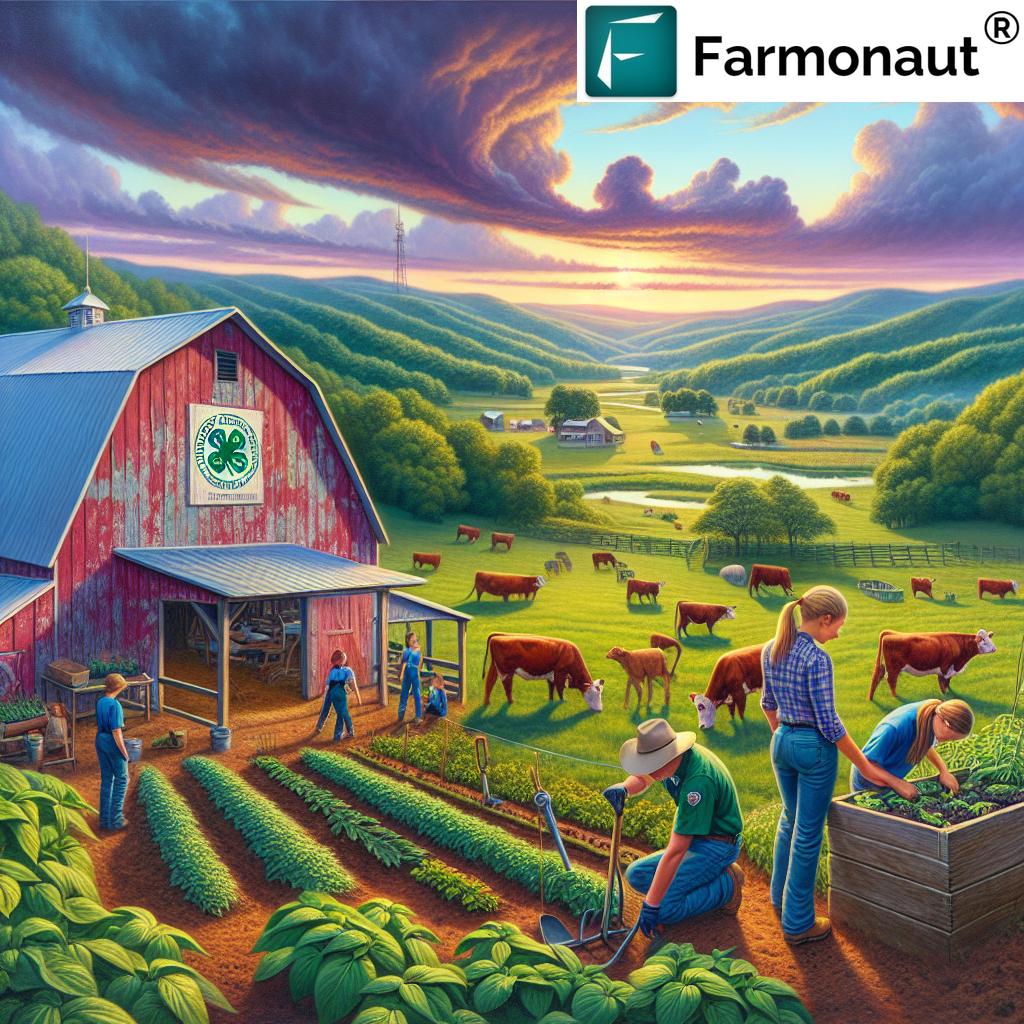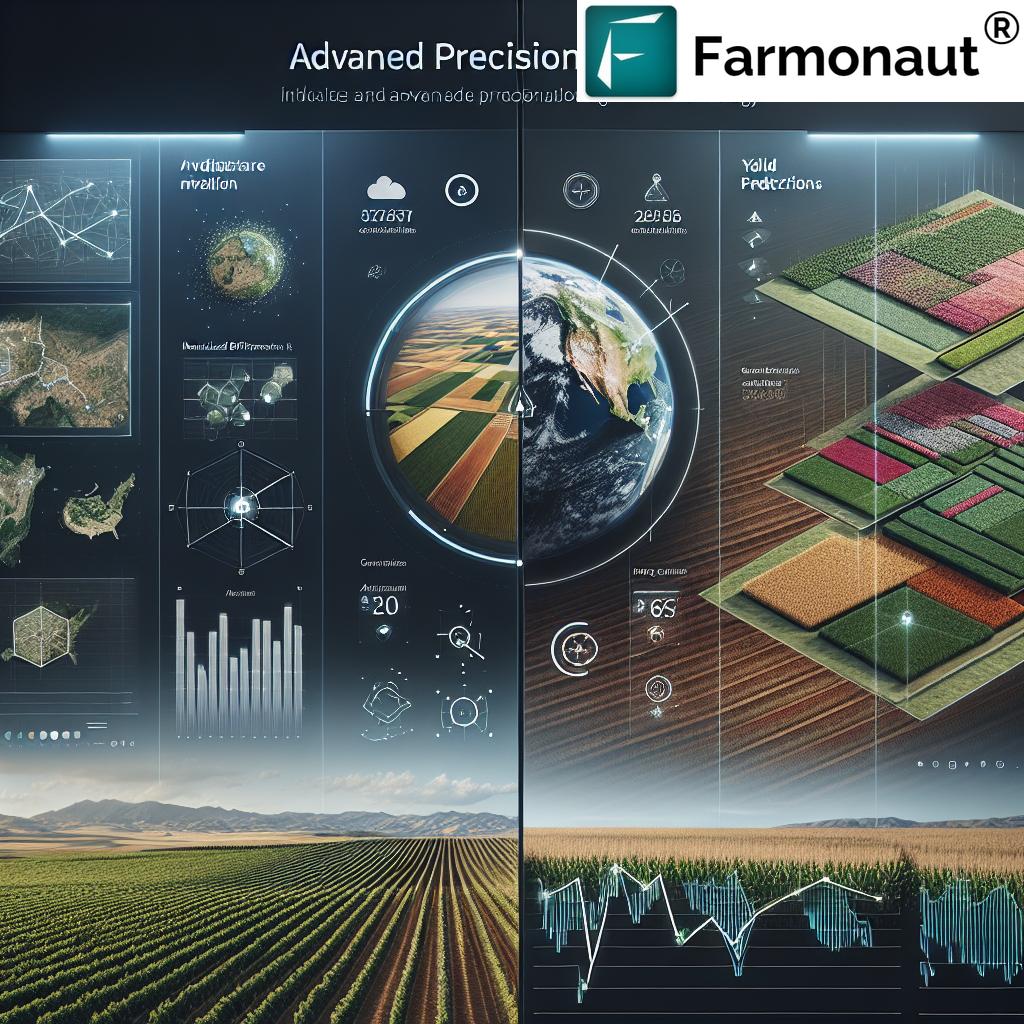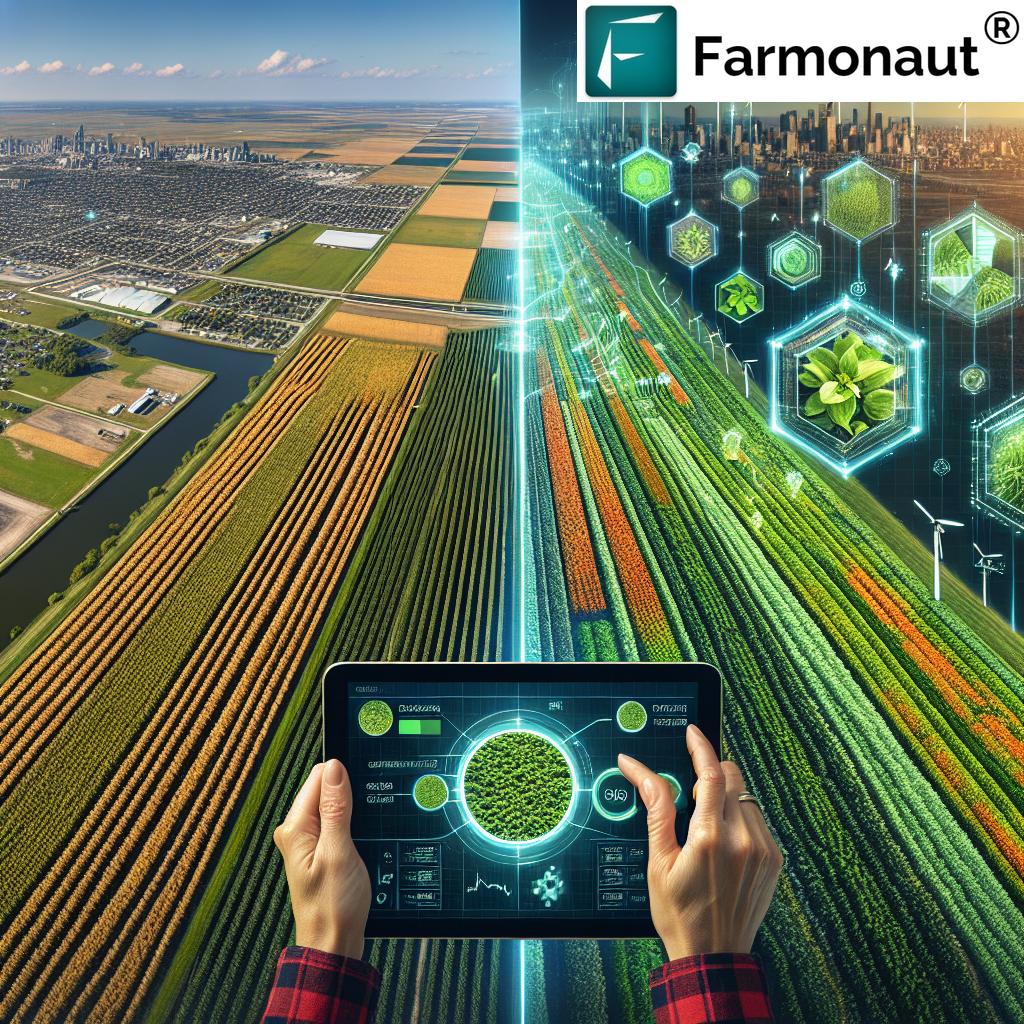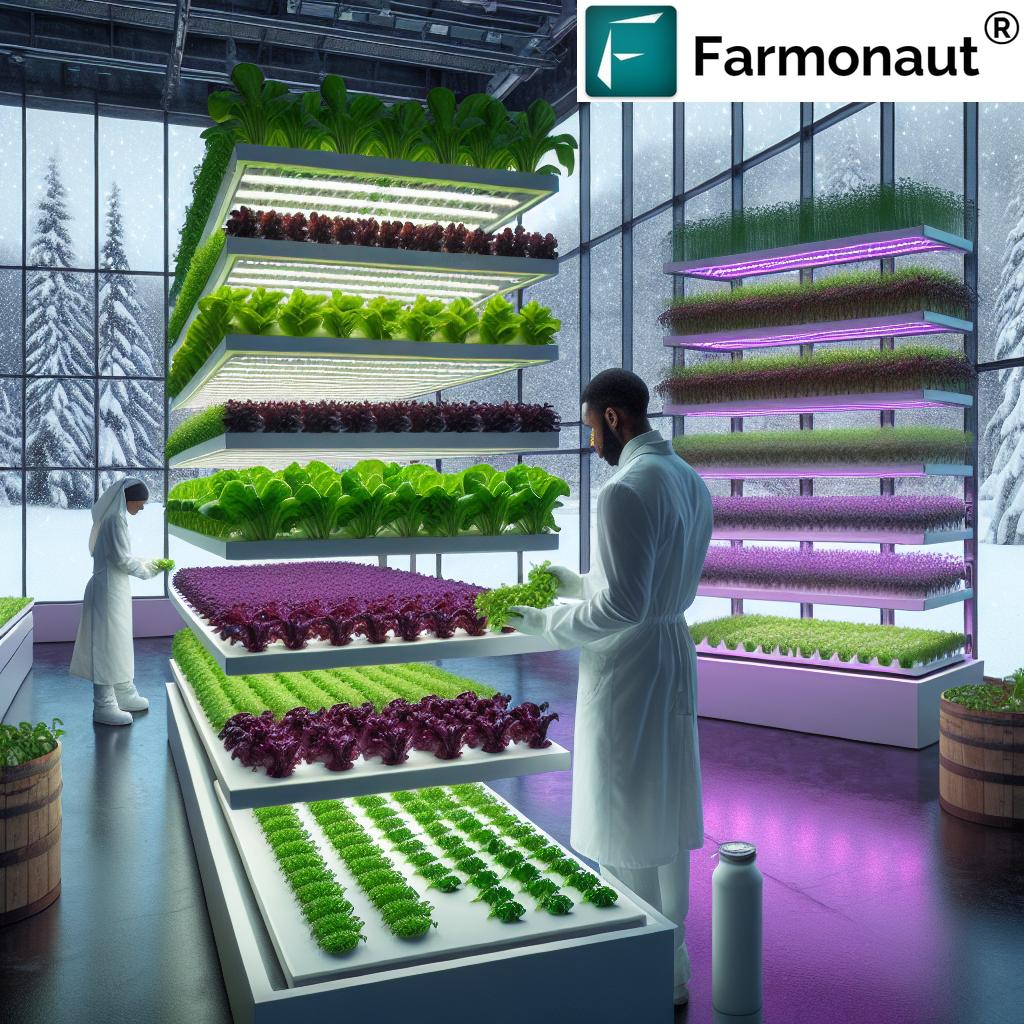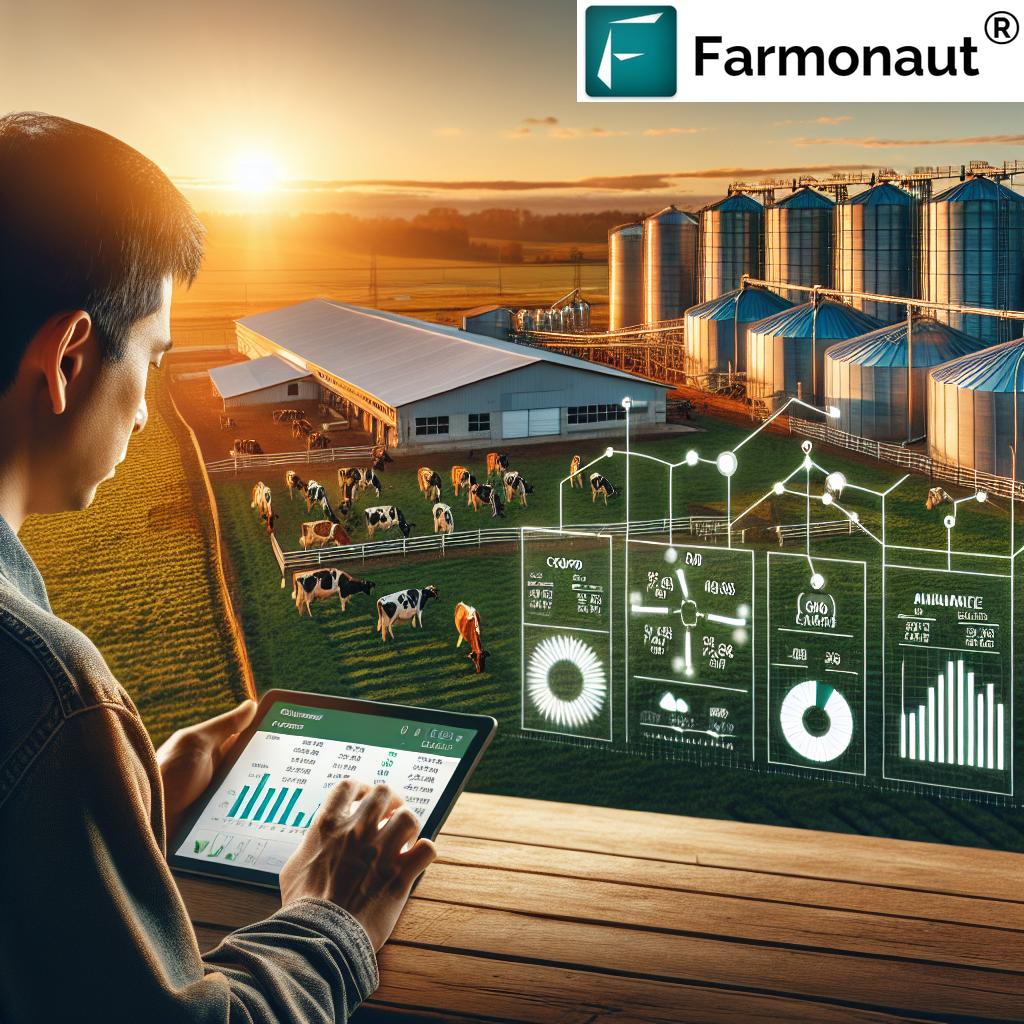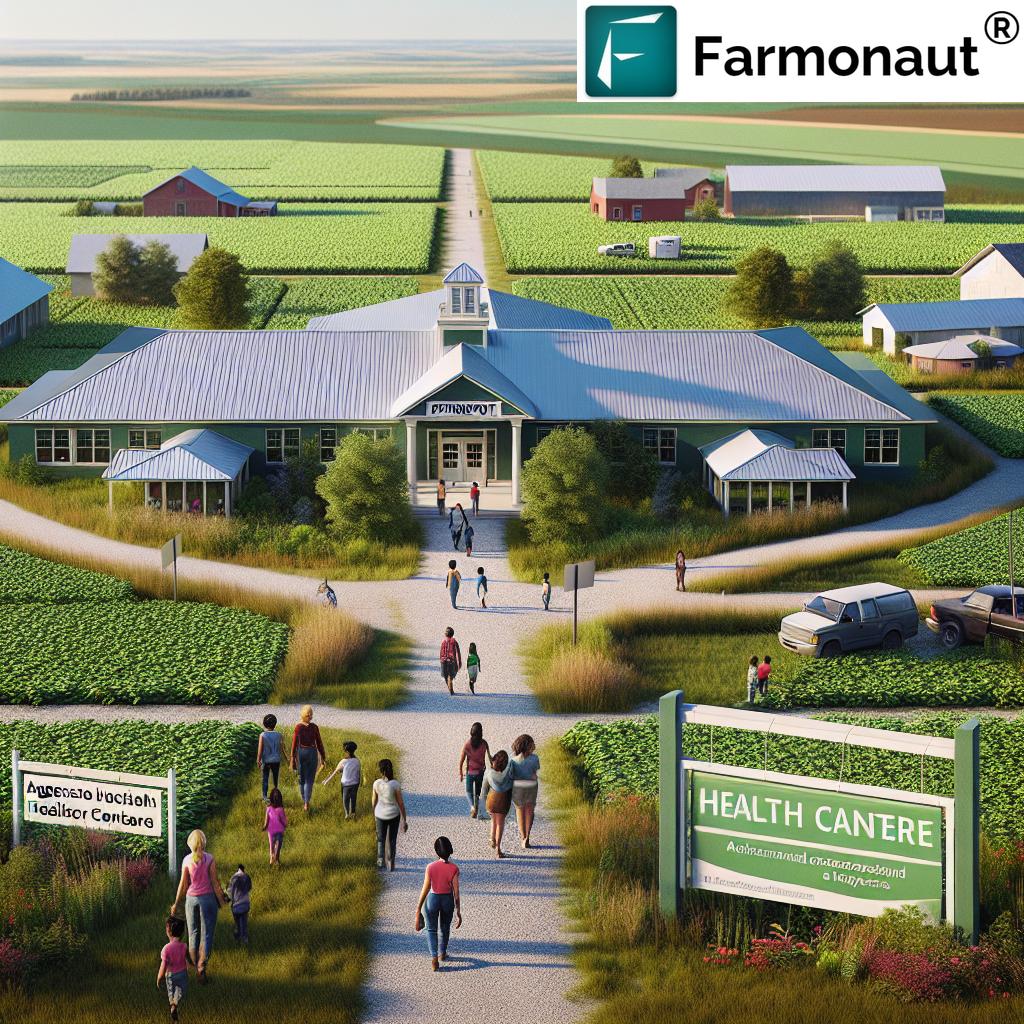2024 Ag Outlook: Navigating Market Trends, Weather Impacts, and Precision Farming Solutions for Illinois Farmers
“In 2023, 78% of Illinois farmers reported adopting at least one precision agriculture technology to optimize crop yields.”
As we step into 2024, the agricultural landscape in Illinois continues to evolve, presenting both challenges and opportunities for farmers across the state. In this comprehensive “Ag Year in Review” blog post, we’ll explore the key factors shaping the farming industry, from market trends and weather impacts to cutting-edge precision agriculture solutions. Our goal is to equip Illinois farmers with the insights and knowledge needed to make informed decisions and thrive in the ever-changing world of agriculture.
Market Trends: Navigating the Economic Landscape
The agricultural market in 2024 is characterized by dynamic shifts influenced by global events, trade policies, and changing consumer preferences. Let’s delve into the key market trends Illinois farmers should be aware of:
- Commodity Prices: Corn and soybean prices have shown volatility in recent months, influenced by factors such as global supply and demand, weather conditions, and international trade dynamics. Our agricultural market analysis suggests a cautiously optimistic outlook for 2024, with potential for moderate price increases.
- Input Costs: Managing farm input costs remains a critical challenge for Illinois farmers. Fertilizer prices, which saw significant increases in previous years, are expected to stabilize in 2024. However, farmers should remain vigilant and explore cost-effective alternatives and precision application methods to optimize their input use.
- Supply Chain Solutions: The agricultural supply chain has shown resilience in adapting to recent global disruptions. In 2024, we anticipate further improvements in logistics and distribution networks, potentially reducing transportation costs and enhancing market access for Illinois farmers.
To stay ahead of these market trends, Illinois farmers can leverage precision agriculture practices and data-driven insights to make informed decisions about crop selection, input management, and marketing strategies.
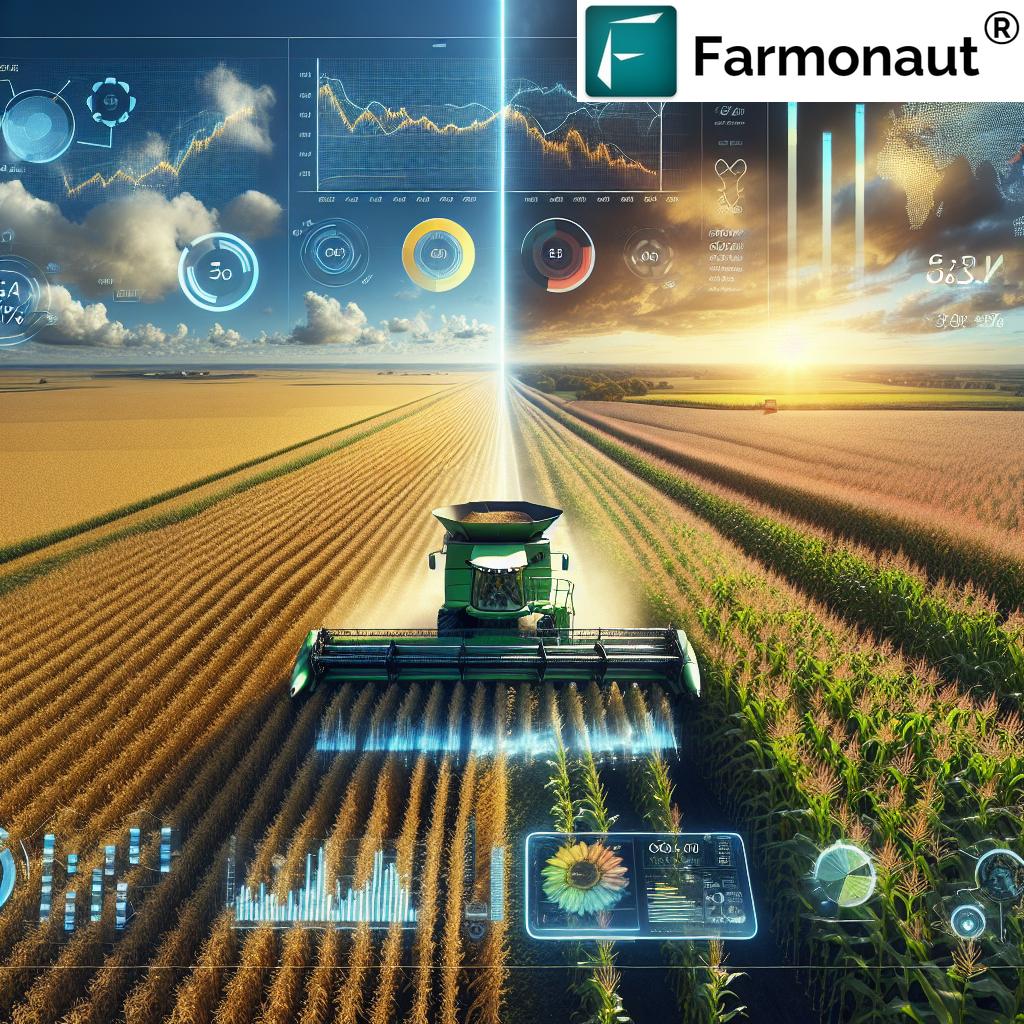
Weather Impacts: Adapting to Climate Challenges
“Weather-related crop losses in Illinois decreased by 15% due to improved forecasting and adaptive farming practices.”
Weather patterns continue to play a crucial role in shaping agricultural outcomes. In 2024, Illinois farmers face both opportunities and challenges related to climate conditions:
- Precipitation Patterns: Long-term climate projections suggest a trend towards more variable precipitation in Illinois. This may lead to periods of both excessive rainfall and drought conditions, requiring farmers to implement robust water management strategies.
- Temperature Fluctuations: Changing temperature patterns, including potential heat waves and unexpected frost events, may impact crop growth cycles and pest pressures. Farmers should consider adopting heat-tolerant crop varieties and adjusting planting dates to mitigate these risks.
- Extreme Weather Events: The frequency of severe weather events, such as storms and flooding, may increase. Implementing soil conservation practices and investing in drainage infrastructure can help protect crops and reduce soil erosion.
To address these weather-related challenges, Illinois farmers can utilize advanced weather forecasting tools and precision agriculture technologies to make data-driven decisions about planting, irrigation, and crop protection.
Precision Farming Solutions: Embracing Agricultural Technology Trends
The adoption of precision agriculture practices continues to revolutionize farming in Illinois. In 2024, we expect to see further integration of cutting-edge technologies that enhance efficiency, sustainability, and profitability:
- Satellite-Based Crop Monitoring: Advanced satellite imagery technologies, such as those offered by Farmonaut, provide real-time insights into crop health, soil moisture levels, and vegetation indices. These tools enable farmers to make precise decisions about irrigation, fertilization, and pest management.
- AI-Powered Advisory Systems: Artificial intelligence is transforming farm management by providing personalized recommendations based on data analysis. These systems can help optimize resource allocation, predict pest outbreaks, and improve overall farm productivity.
- Drone Technology: The use of drones for crop scouting, spraying, and mapping continues to gain traction. In 2024, we anticipate more affordable and user-friendly drone solutions becoming available to Illinois farmers.
- IoT Sensors and Smart Farming: Internet of Things (IoT) devices are enabling real-time monitoring of soil conditions, weather, and equipment performance. This connectivity allows for more precise control over farming operations and resource management.
By embracing these precision agriculture practices, Illinois farmers can achieve significant improvements in crop yield optimization, resource efficiency, and overall farm profitability.
Sustainable Farming Methods: Balancing Productivity and Environmental Stewardship
Sustainability has become a cornerstone of modern agriculture, and in 2024, we expect to see increased focus on environmentally friendly farming practices in Illinois:
- Cover Cropping: The use of cover crops to improve soil health, reduce erosion, and enhance nutrient cycling is gaining popularity. Illinois farmers are increasingly incorporating cover crops into their rotation strategies.
- Conservation Tillage: Reduced tillage and no-till practices are helping to preserve soil structure, increase organic matter, and reduce greenhouse gas emissions. These methods also contribute to improved water retention and reduced input costs.
- Precision Nutrient Management: By leveraging soil testing and variable-rate application technologies, farmers can optimize fertilizer use, reducing environmental impact while maintaining or improving crop yields.
- Integrated Pest Management (IPM): Advanced IPM strategies, incorporating biological controls and targeted pesticide applications, help minimize chemical use while effectively managing pest pressures.
Adopting these sustainable farming methods not only benefits the environment but also contributes to long-term farm viability and potentially opens up new market opportunities for environmentally conscious consumers.
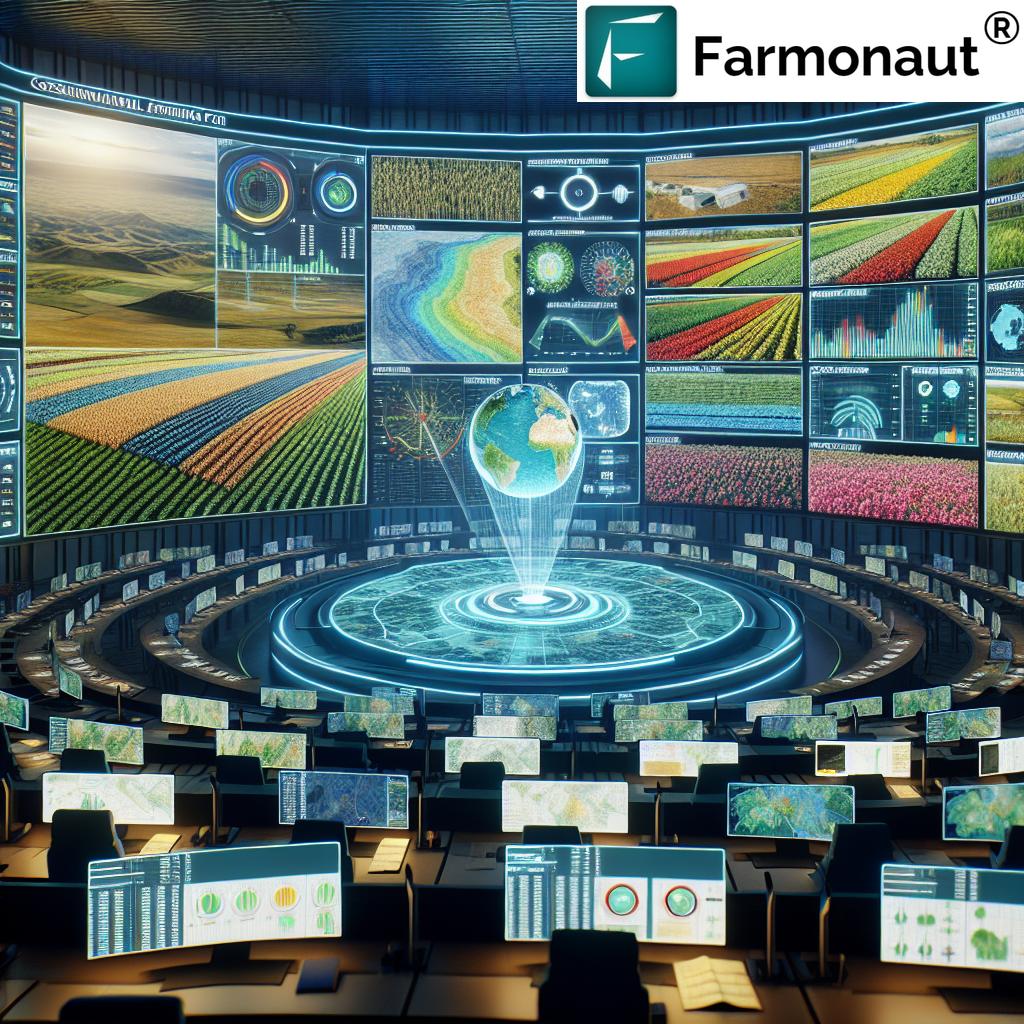
Farm Input Cost Management: Strategies for Profitability
Managing input costs remains a critical concern for Illinois farmers in 2024. Here are some strategies to help optimize expenses while maintaining productivity:
- Precision Application Technologies: Variable-rate application of fertilizers and pesticides can significantly reduce input waste and improve efficiency. Tools like GPS-guided sprayers and smart spreaders enable targeted application based on field variability.
- Alternative Nutrient Sources: Exploring organic fertilizers, crop residue management, and biological soil amendments can help reduce reliance on synthetic fertilizers and potentially lower costs.
- Energy Efficiency: Investing in energy-efficient equipment and exploring renewable energy options, such as solar panels for farm operations, can lead to long-term cost savings.
- Data-Driven Decision Making: Utilizing farm management software and data analytics can help identify areas of inefficiency and guide resource allocation decisions.
By implementing these strategies, Illinois farmers can better manage their input costs and improve overall farm profitability.
Commodity Price Forecasting: Navigating Market Uncertainties
Accurate commodity price forecasting is essential for making informed planting and marketing decisions. In 2024, Illinois farmers should consider the following factors when developing their marketing strategies:
- Global Supply and Demand: Keep a close eye on international crop production reports, trade policies, and consumption trends that can impact commodity prices.
- Weather Patterns: Monitor long-term weather forecasts and their potential impact on crop yields both locally and in major producing regions worldwide.
- Alternative Uses: Stay informed about emerging markets for agricultural products, such as biofuels and plant-based proteins, which can influence demand and pricing.
- Currency Exchange Rates: Fluctuations in the U.S. dollar can affect the competitiveness of American agricultural exports and impact commodity prices.
Utilizing advanced market analysis tools and staying informed about global agricultural trends can help Illinois farmers make more accurate price projections and develop effective marketing plans.
Explore Farmonaut’s API for advanced agricultural data analysis
Agtech Innovation: Shaping the Future of Farming
The agricultural technology sector continues to evolve rapidly, offering new solutions to age-old farming challenges. In 2024, we expect to see advancements in several key areas:
- Gene Editing and Crop Improvement: CRISPR and other gene-editing technologies are enabling the development of crops with enhanced traits such as disease resistance, drought tolerance, and improved nutritional profiles.
- Robotics and Automation: Autonomous tractors, robotic harvesters, and automated irrigation systems are becoming more sophisticated and accessible, helping to address labor shortages and improve efficiency.
- Blockchain in Agriculture: Blockchain technology is being utilized to enhance traceability in the food supply chain, providing transparency and building consumer trust.
- Vertical Farming and Controlled Environment Agriculture: While primarily focused on high-value crops, these technologies are advancing rapidly and may offer new opportunities for Illinois farmers to diversify their operations.
Staying informed about these emerging technologies can help Illinois farmers identify new opportunities to improve their operations and remain competitive in a rapidly changing agricultural landscape.
Access Farmonaut’s API Developer Docs for integration with your farm management systems
Agricultural Events and Conferences: Staying Informed and Connected
Attending agricultural events and conferences is crucial for staying up-to-date with industry trends, networking with peers, and discovering new technologies. Here are some key events Illinois farmers should consider in 2024:
- Illinois Farm Bureau Annual Meeting: This event brings together farmers from across the state to discuss policy issues, share experiences, and learn about new agricultural developments.
- Farm Progress Show: As one of the largest outdoor farm events in the nation, this show showcases the latest in farm equipment, crop technologies, and precision agriculture solutions.
- Precision Agriculture Conference: This specialized conference focuses on the latest advancements in precision farming technologies and practices.
- Illinois Specialty Crops, Agritourism and Organic Conference: For farmers interested in diversifying their operations, this event offers insights into specialty crop production, agritourism, and organic farming practices.
Participating in these events can provide valuable insights and connections to help Illinois farmers stay at the forefront of agricultural innovation.
2024 Illinois Agriculture Outlook Comparison
| Factor | 2023 Status | 2024 Projection | Precision Farming Impact |
|---|---|---|---|
| Corn Yield (bu/acre) | 202 | 205-210 | +3-5% with optimized inputs |
| Soybean Yield (bu/acre) | 64 | 65-68 | +2-4% with precision planting |
| Weather Patterns | Variable, some drought stress | Increased variability expected | Better management with advanced forecasting |
| Input Costs | High, especially fertilizers | Stabilizing, potential slight decrease | 5-10% reduction with precision application |
| Commodity Prices | Moderate to high | Slight increase possible | Improved marketing with data-driven decisions |
| Adoption of Precision Ag Technologies (%) | 78% | 85-90% | Significant yield and efficiency improvements |
| Sustainability Metrics | Increasing focus | Enhanced importance, potential incentives | Improved resource use efficiency, reduced environmental impact |
Leveraging Farmonaut for Precision Agriculture
As we navigate the complex agricultural landscape of 2024, tools like Farmonaut are becoming increasingly valuable for Illinois farmers. Farmonaut offers a comprehensive suite of precision agriculture solutions that can help address many of the challenges and opportunities we’ve discussed:
- Satellite-Based Crop Health Monitoring: Farmonaut’s platform provides real-time insights into crop health, allowing farmers to identify issues early and make timely interventions.
- AI-Powered Advisory System: The Jeevn AI system offers personalized recommendations based on field-specific data, helping farmers optimize their management practices.
- Weather Forecasting: Access to accurate, localized weather predictions enables better planning and risk management.
- Resource Management Tools: Farmonaut’s solutions can help farmers optimize their use of water, fertilizers, and other inputs, leading to cost savings and improved sustainability.
By integrating Farmonaut’s technology into their operations, Illinois farmers can enhance their decision-making processes, improve efficiency, and ultimately increase profitability.
Conclusion: Embracing the Future of Illinois Agriculture
As we look ahead to 2024, Illinois farmers face a landscape of both challenges and opportunities. By staying informed about market trends, adapting to weather impacts, and embracing precision farming solutions, farmers can position themselves for success in an ever-evolving industry.
The key to thriving in this environment lies in continuous learning, adopting innovative technologies, and making data-driven decisions. By leveraging tools like Farmonaut and staying connected with the broader agricultural community through events and conferences, Illinois farmers can navigate the complexities of modern agriculture and build resilient, profitable operations.
As we move forward, the focus on sustainability, efficiency, and precision will only intensify. Illinois farmers who embrace these principles and utilize the latest agricultural technology trends will be well-equipped to meet the demands of a growing world while preserving the long-term viability of their farms.
Farmonaut Subscriptions
Frequently Asked Questions
Q: How can precision agriculture help Illinois farmers improve their crop yields?
A: Precision agriculture technologies, such as satellite-based crop monitoring and variable-rate application systems, allow farmers to optimize their use of inputs like water, fertilizers, and pesticides. This targeted approach can lead to improved crop health, reduced waste, and ultimately higher yields.
Q: What are some effective strategies for managing farm input costs in 2024?
A: Key strategies include adopting precision application technologies to reduce input waste, exploring alternative nutrient sources, improving energy efficiency, and utilizing data analytics to identify areas of inefficiency in farm operations.
Q: How can Illinois farmers stay informed about the latest agricultural market trends?
A: Farmers can stay informed by attending agricultural events and conferences, subscribing to industry publications, participating in farmer networks, and utilizing market analysis tools and services provided by organizations like the Illinois Farm Bureau.
Q: What role does weather forecasting play in modern farming practices?
A: Advanced weather forecasting is crucial for planning planting dates, managing irrigation, timing pesticide applications, and making harvesting decisions. Accurate long-term forecasts also help farmers prepare for potential extreme weather events and adapt their crop management strategies accordingly.
Q: How can farmers incorporate sustainable practices while maintaining profitability?
A: Farmers can adopt practices such as cover cropping, conservation tillage, and precision nutrient management, which not only promote sustainability but can also lead to cost savings and improved soil health. Additionally, exploring markets for sustainably produced crops can open up new revenue streams.
As we conclude this comprehensive review of the 2024 agricultural outlook for Illinois farmers, we hope you’ve gained valuable insights into the market trends, weather impacts, and precision farming solutions shaping our industry. By staying informed, embracing innovation, and leveraging tools like Farmonaut, Illinois farmers can navigate the challenges ahead and build thriving, sustainable operations for years to come.





